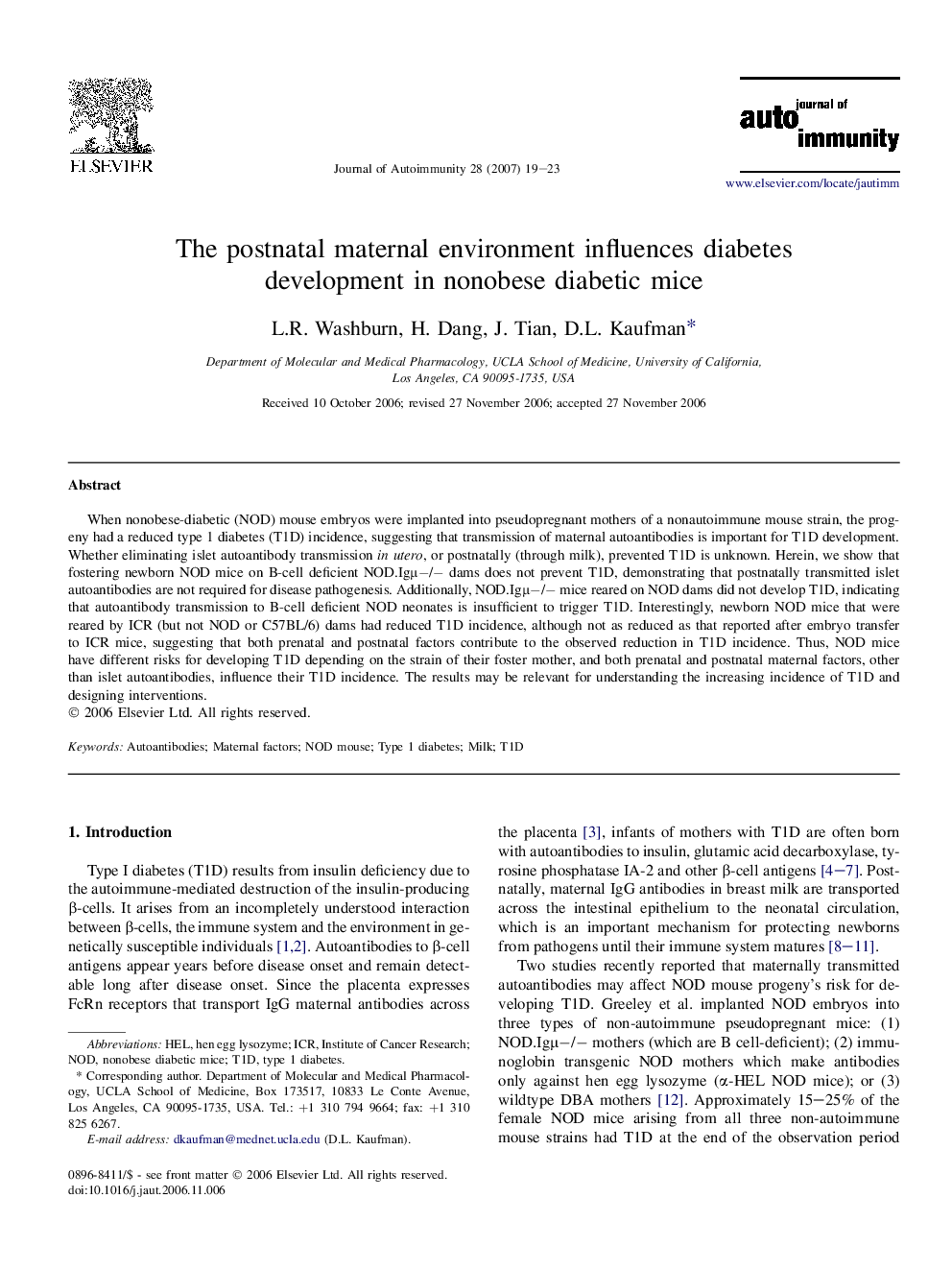| کد مقاله | کد نشریه | سال انتشار | مقاله انگلیسی | نسخه تمام متن |
|---|---|---|---|---|
| 3368540 | 1218798 | 2007 | 5 صفحه PDF | دانلود رایگان |

When nonobese-diabetic (NOD) mouse embryos were implanted into pseudopregnant mothers of a nonautoimmune mouse strain, the progeny had a reduced type 1 diabetes (T1D) incidence, suggesting that transmission of maternal autoantibodies is important for T1D development. Whether eliminating islet autoantibody transmission in utero, or postnatally (through milk), prevented T1D is unknown. Herein, we show that fostering newborn NOD mice on B-cell deficient NOD.Igμ−/− dams does not prevent T1D, demonstrating that postnatally transmitted islet autoantibodies are not required for disease pathogenesis. Additionally, NOD.Igμ−/− mice reared on NOD dams did not develop T1D, indicating that autoantibody transmission to B-cell deficient NOD neonates is insufficient to trigger T1D. Interestingly, newborn NOD mice that were reared by ICR (but not NOD or C57BL/6) dams had reduced T1D incidence, although not as reduced as that reported after embryo transfer to ICR mice, suggesting that both prenatal and postnatal factors contribute to the observed reduction in T1D incidence. Thus, NOD mice have different risks for developing T1D depending on the strain of their foster mother, and both prenatal and postnatal maternal factors, other than islet autoantibodies, influence their T1D incidence. The results may be relevant for understanding the increasing incidence of T1D and designing interventions.
Journal: Journal of Autoimmunity - Volume 28, Issue 1, February 2007, Pages 19–23